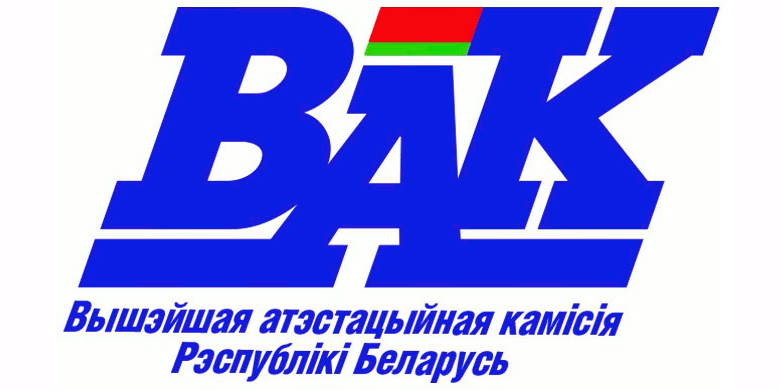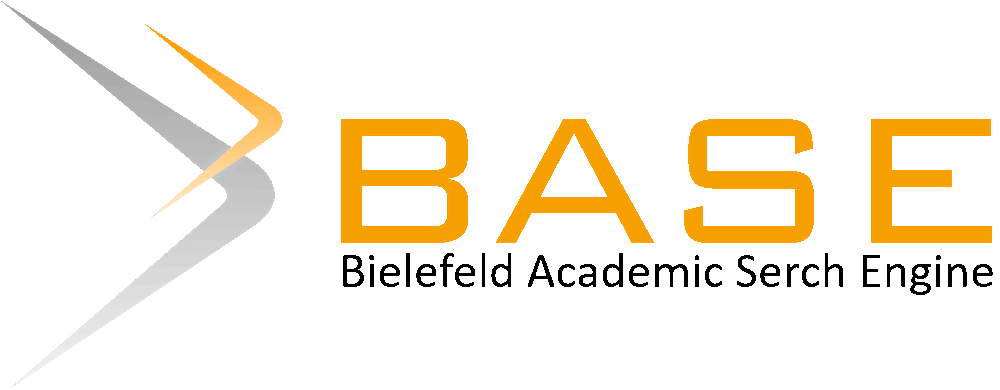Some debating points of investment promotion in the form of public–private partnership.
Аннотация
Стремительный рост необходимости развития транспортной инфраструктуры потребовал значительных финансовых средств на ее развитие и поддержание. Традиционных источников финансирования транспортной инфраструктуры с каждым годом становится недостаточно. В связи с этим нестандартные формы финансирования, подразумевающие привлечение внебюджетных средств в сферу транспортных коммуникаций, с каждым годом набирают все большую популярность. Государственно–частное партнерство (ГЧП) имеет много преимуществ по сравнению с другими формами привлечения средств. На сегодняшний день оно является одной из актуальных тем для обсуждения. Однако при наличии различных целей партнеров, партнерство должно быть выгодным как для государства, так и для частного инвестора. В настоящее время механизм ГЧП приходит в экономику Республики Беларусь. В этой статье автор указывает на основные разногласия партнеров, с которыми может столкнуться Беларусь при реализации транспортных проектов в рамках ЧГП. = The urgent necessity of transport infrastructure development requires significant financial resources for its construction and maintenance. There are no sufficient traditional sources for these purposes. There-fore the use of innovative forms of financing implying obtaining of extra budgetary resources for the transportation sphere becomes more and more popular year after year. Public–private partnership (PPP) has many advantages over other forms of fundraising. Today it is one of the most pressing topics for discussion. But goals of partners are different. However, partnership should be beneficial for both state and private investors. At present the mechanism of PPP becomes more and more relevant for the economy of Belarus. The author of this paper defines the main disagreements between the partners which the Republic of Belarus may face in implementation of transport projects within the PPP. Key words: financing of transport infrastructure; public–private partnership (PPP); possible disagree-ments between partners; Republic of Belarus.Библиографические ссылки
A Comparative Analysis of Public– Private Partnership (PPP) Coordination Agencies in India: What Works and What Doesn't /AshwinMahalingam [et al.] // Public Works Management & Policy. – 2011. – Vol. 16(4). – P. 341–372.
Bystrov, S. A. On the prospects the construction of toll roads in Russia. / S. A. Bystrov // Industrial policy in the Russian Federation. – 2005. – № 2. – P. 3 – 6.
Poole, R. W. Protecting the Public interest in long–term highway concessions / Robert W. Poole // Transportation Research News. – 2001. – Number 274, May–June. – P. 28 – 32.
Garvin, M.J. International practices in public–private partnerships: Synthesis and discussion /Michael J. Garv-in // Transportation Research News. – 2001. – Number 274, May–June. – P. 10 – 15.
Vining, A.R., Boardman, A. E. Public–Private Partnerships Eight Rules for Governments /Aidan R. Vining, Anthony E. Boardman // Public Works Management & Policy. – 2008. – Vol. 13 (2). – P. 149 – 161.
Rev, H. L. Public – Private Partnerships and Insurance Regulation / Harv. L. Rev // Harvard law review. – 2008. – Vol. 121 (5). – P. 1367 – 1386.
Litvina, I. Partnership / I. Litvin // Respublika [Electronic resource]. – 2011. – № 219 (5382). – Mode of access http://www.respublika.info/5382/roundtable/article51062/. – Date of access: 12/06/2011.
Hammami, M. IMF Working Paper, WP/06/99 / Mona Hammami, Jean–Francois Ruhashyankiko, Etienne B. Yehoue // Determinants of Public–Private Partnerships in Infrastructure [Electronic resource]. – 2006. – Mode of access: http://www.imf.org/external/pubs/ft/wp/2006/wp0699.pdf. – Date of access: 15.02.2011.
Tochitskaya, I. Partnerships of public and private sectors / I. Tochitskaya// IPM Research Center [Electronic resource]. – 2007. – Mode of access: http://research.by/pdf/pp2007r01.pdf.– Date of access: 12/06/2011.
Korol, N. Road, road, you signify so much .../ N/ Korol// Respublika [Electronic resource]. – 2012. – № 253 (5416). – Mode of access: http://www.respublika.info/5416/region/article51944/ – Date of access: 01/04/2012.
The College of the State Control Committee considered the results of the inspection target and efficient use of budget funds by organizations of road sector // State Control Committee of Belarus [Electronic resource]. –2011.– Mode of access: http : // www.kgk.gov.by/ru/kommentarii/v–xode–proverki–organizatsij–dorozhnogo–xozjajstva–
vyjavleny–mnogochislennye–fakty–neobosnovannogo–zavyshenija–objemov–i–stoimosti–vypolnennyx–
rabot_i_7550.html . – Date of access: 23/05/2011.
Davies, S. Paper 39 – Private Finance Initiative (PFI) and Public Private Partnerships (PPPs): Definitions and Sources / S. Davies, P. Fairbrother // School of Social Science, Cardiff University [Electronic resource]. – 2003. – Mode of access: http://www.cf.ac.uk/socsi/research/publications/ workingpapers/paper–39.html – Date of access: 29.11.2011.
Загрузки
Как цитировать
Выпуск
Раздел
Лицензия
Автор предоставляет Редакции журнала на весь срок действия исключительных прав на Произведение следующие права:
1. право на воспроизведение Произведения (опубликование, обнародование, дублирование, тиражирование или иное размножение Произведения) без ограничения тиража экземпляров. При этом каждый экземпляр Произведения должен содержать имя автора Произведения;
2. право на распространение Произведения любым способом;
3. право на включение в составное произведение;
4. право на доведение до всеобщего сведения;
5. на использование метаданных (название, имя автора (правообладателя), аннотации, библиографические материалы и пр.) Произведений путем распространения и доведения до всеобщего сведения, обработки и систематизации, а также включения в различные базы данных и информационные системы.
6. право переуступить на договорных условиях частично или полностью полученные по настоящему договору права третьим лицам без выплаты Автору вознаграждения.
Автор передает права Редакция журналау по настоящему Договору на основе неисключительной лицензии.
Редакция журнала обязуется соблюдать предусмотренные действующим законодательством авторские права, права Автора, а также осуществлять их защиту и принимать все возможные меры для предупреждения нарушения авторских прав третьими лицами.
Территория, на которой допускается использование прав на Произведения, не ограничена.
Автор также предоставляет Редакция журналау право хранения и обработки следующих своих персональных данных без ограничения по сроку:
• фамилия, имя, отчество;
• дата рождения;
• сведения об образовании;
• сведения о месте работы и занимаемой должности;
• сведения о наличии опубликованных произведений литературы, науки и искусства.
Персональные данные предоставляются для их хранения и обработки в различных базах данных и информационных системах, включения их в аналитические и статистические отчетности, создания обоснованных взаимосвязей объектов произведений науки, литературы и искусства с персональными данными и т.п.
Редакция журнала имеет право передать указанные данные для обработки и хранения третьим лицам при условии уведомления о таком факте с предоставлением сведений о третьем лице (наименование и адрес) Автору.
Отзыв согласия на хранение и обработку персональных данных производится Автором путем направления соответствующего письменного уведомления Редакции журнала.
Автор и Редакция журнала несут в соответствии с действующим законодательством Республики Беларусь имущественную и иную юридическую ответственность за неисполнение или ненадлежащее исполнение своих обязательств.
Сторона, ненадлежащим образом исполнившая или не исполнившая свои обязанности, обязана возместить убытки, причиненные другой Стороне, включая упущенную выгоду.
Все споры и разногласия Сторон, вытекающие из условий настоящего Договора, подлежат урегулированию путем переговоров, а в случае их безрезультатности, указанные споры подлежат разрешению в суде в соответствии с действующим законодательством Республики Беларусь.
Расторжение настоящего соглашения возможно в любое время по обоюдному согласию Сторон, с обязательным подписанием Сторонами соответствующего соглашения об этом.
Расторжение настоящего соглашения в одностороннем порядке возможно в случаях, предусмотренных действующим законодательством, либо по решению суда.
Во всем, что не предусмотрено настоящим соглашением, Стороны руководствуются нормами действующего законодательства Республики Беларусь.















.gif)
